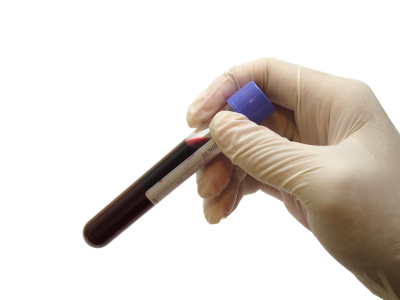Your Blood Work is “Normal!” The Hypothyroidism Controversy Continues
“Good Housekeeping” recently published an article about the diagnosis and treatment of thyroid problems. Unfortunately, it did not do justice to women who are seeking the proper solution for their hypothyroid symptoms.
The article does correctly list some of the common symptoms of hypothyroidism: “fatigue, bloating, weight gain, irregular periods, constipation, dry skin, thinning hair, thinning brows, forgetfulness, depression, cold hands and feet, muscle cramps, low sex drive.” However, it focuses on the mainstream approach to diagnose and treat hypothyroidism; an approach that has failed thousands of women. We hear from women on a daily basis who have been to their doctor complaining of the symptoms of hypothyroidism, only to be told their blood work is “normal” and sent away without help.
The doctors interviewed for the article advocate the thyroid stimulating hormone (TSH) test as the definitive diagnostic tool to determine if a person has hypothyroidism. The issue with only evaluating the TSH test is that your lab results may fall within the “normal” range; however that may not be where you need to be for your optimal health. For example, you may fall within the high end of the range, but what if you really need to be in the low end of the range to resolve your symptoms?
The single most important tool in determining your thyroid status and hypothyroidism treatment is a thorough review of your symptoms and a physical examination. The diagnosis of hypothyroidism should be made primarily on the basis of your clinical history and basal body temperature. Make sure your doctor listens to and evaluates all of your symptoms. If your basal body temperature is consistently below 97.8, it is highly indicative that you may suffer from hypothyroidism.
The article then describes Synthroid as the go-to medication for treating hypothyroidism. If you are lucky enough to even get a diagnosis of hypothyroidism using the TSH test, then you will most likely be unlucky to be prescribed this synthetic T4 drug as a result. T4 is the inactive thyroid hormone. Your cells must be able to convert T4 to T3, the active form of thyroid hormone, in order to utilize it to produce energy; but this does not always occur. Many people who take Synthroid do not have resolution of their hypothyroid symptoms.
Once the diagnosis of hypothyroidism has been established, the more effective choice is a therapeutic trial of desiccated thyroid. Desiccated thyroid is bioidentical to the thyroid hormones made by the human body and contains both T3 and T4, as well as numerous other thyroid hormones and nutrients needed by our cells. A doctor interviewed for the article mentions that the potency of desiccated thyroid can vary; however, he was actually referring only to Armour Thyroid, when several lots of Armour Thyroid were recalled in 2003 for variations in potency. There are reliable forms of desiccated thyroid available.
The article also quotes the chief of endocrinology at Mayo Clinic in Rochester, Minnesota, who is clearly misinformed and downplays the benefits of selenium and coconut oil for thyroid function!
Don’t end up like the author of this article, who accepts that her TSH test is normal, is choosing not to seek proper treatment for her possible low thyroid symptoms, and has resolved to drinking coffee for energy! Find a doctor who will look beyond your blood work!
Contact us today for a complimentary wellness consultation at 281-698-8698.

